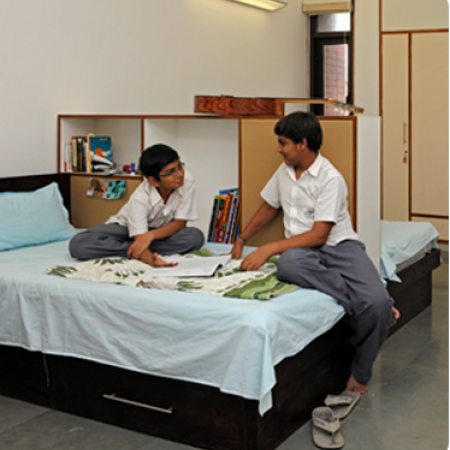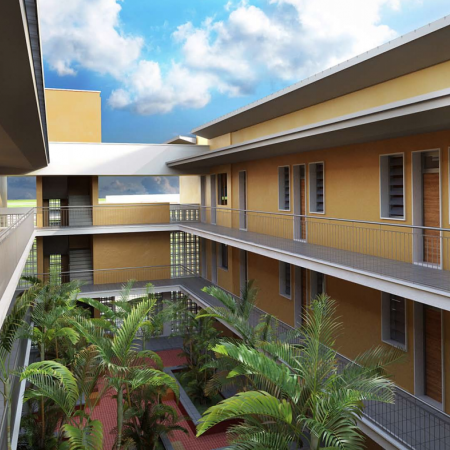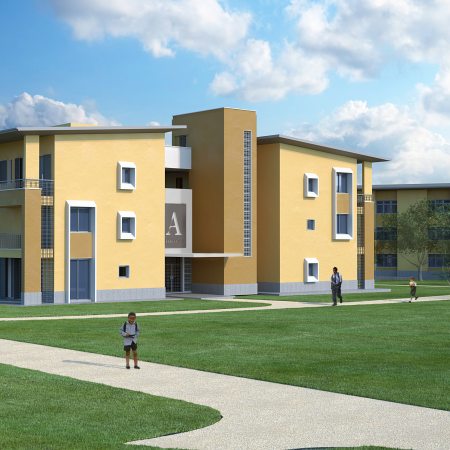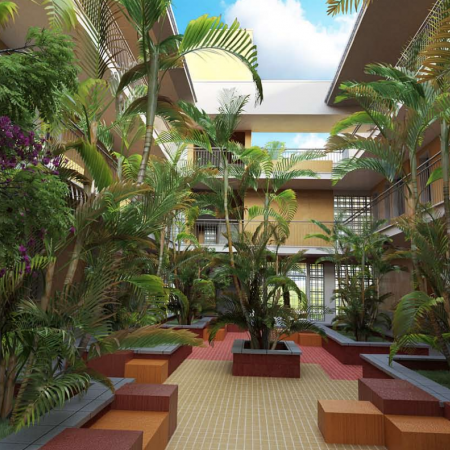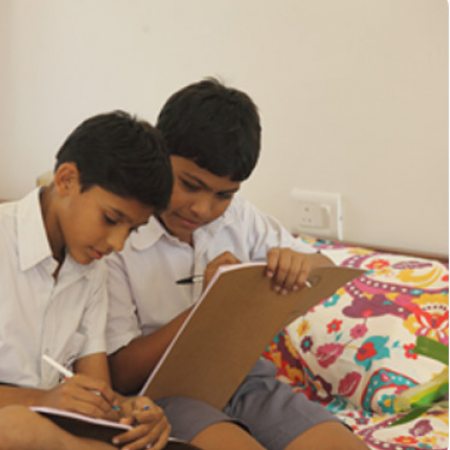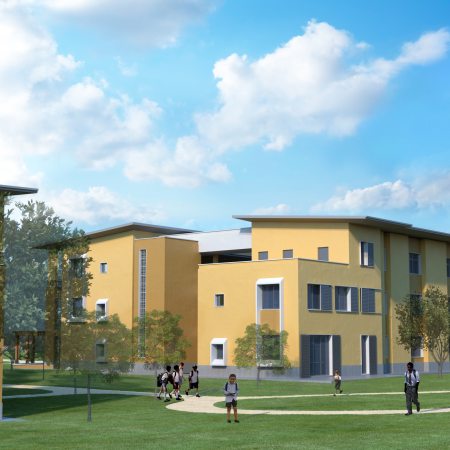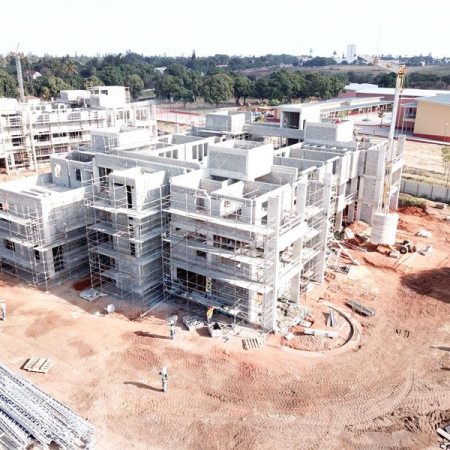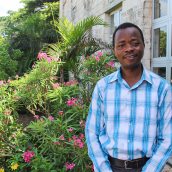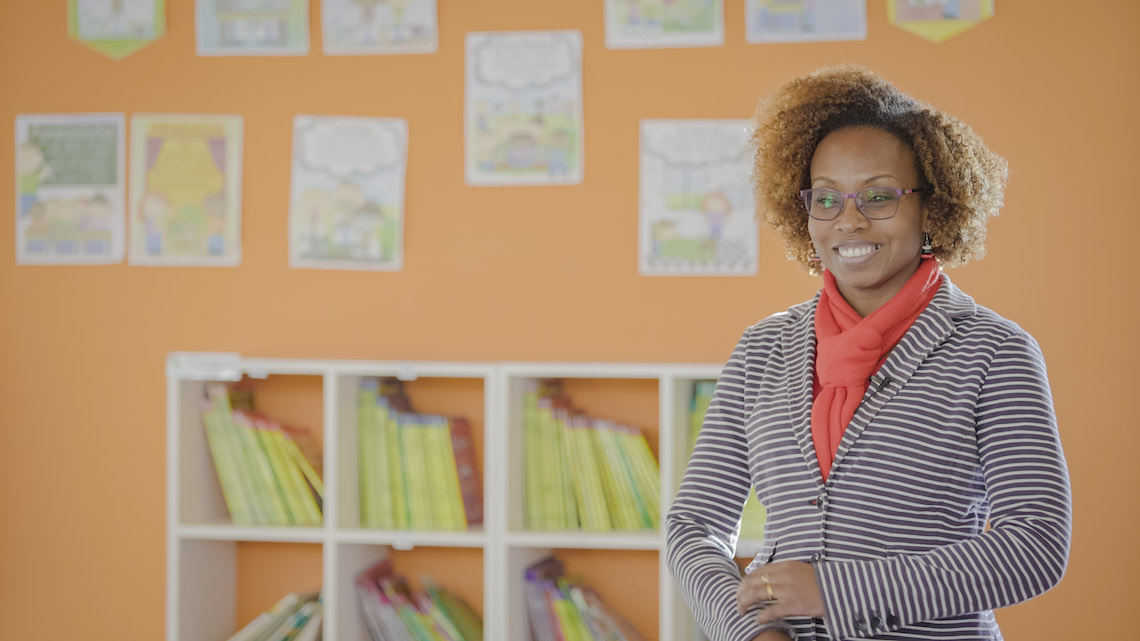AKA Maputo Residential Programme
See some architectural drawings of the new residential campus along with some photos from our other Academies' residential programmes
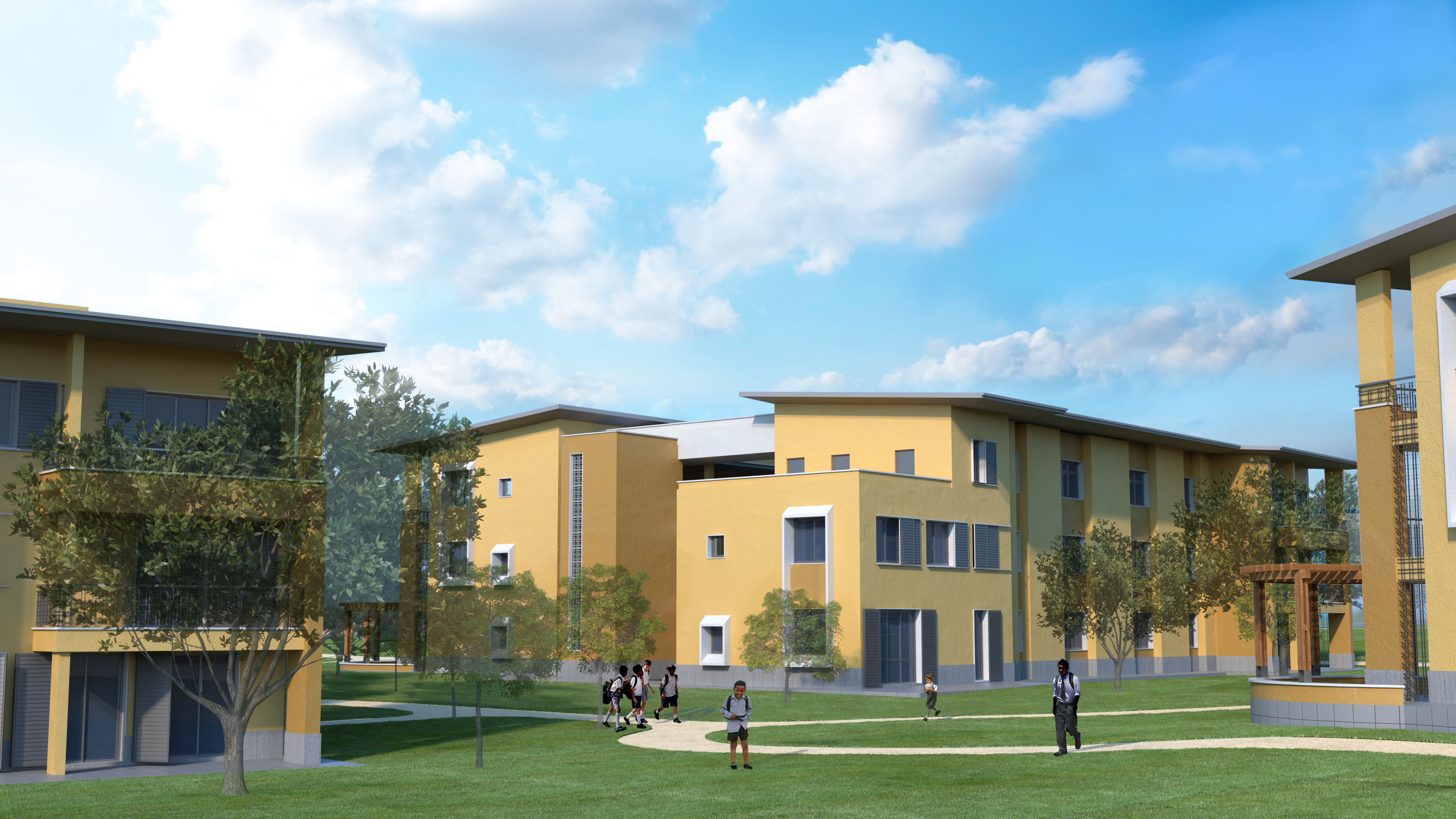
Joseph Munyambanza: The story of a conqueror
As we sat for our lesson on a sweltering Tuesday afternoon, there was anticipation for the upcoming week-long break, obstructed only by the last lesson of the day. We sat for a while in a lazy stupor before our speaker arrived humbly apologising for his delay. Joseph Munyambaza was calm and composed as he began his initial talk on disparities of living. Despite appearing to be an average man who started by talking of ordinary sundries, he informed us that he was raised as a refugee and that it was education that propelled him to the position he is in today.
He began by narrating to us that life was free and full of enjoyment in the Congo. “There was plenty of food, I was always playing…” he recalls as he spoke of his six-year old self. Due to his age, he is now aware that he was shielded from most of the atrocities that must have taken place. His older siblings on the other hand, were not as fortunate. “My brother, who was a teenager at the time, was greatly disturbed by the events that took place…” Eventually, his older brother sought comfort in alcohol in an effort to forget what he had seen. Joseph’s family relocated to refugee camp in Western Uganda in a place called Hoima. Life was different and evidently, it was hard. The life of abundance and freedom was long gone and now the life of lack and want was all that there was. You can imagine the terrible living conditions in the refugee camp which was congested and dangerous. As he grew life seemed to eventually settle when tragedy struck. Joseph’s older sister passed away only a few days before exiting the refugee camp to attend university. What really moved me was the fact that she died under preventable circumstances. His sister died because his family did not have sufficient funds to pay for treatment.
This turning point propelled him to getting a placement in a high school outside the refugee camp where he was to begin to establish his academic prowess. He further explained that he knew how important his opportunity was so he would remain focused in his studies at all costs. Things were running smoothly throughout his years in high school with his school fees sorted out by the UNHCR. He was determined to also give opportunities to other refugee children who, just like him, were so full of potential. “When I was in my second year of secondary school, my friends and I wanted to enable other refugee children to access education. And so we started COBURWAS, a youth organization that represents Congo, Burundi, Uganda, Rwanda and Sudan. Refugees in the refugee camp we lived in came from these countries and we wanted to have a shared solution. All youth came together to think of solutions. Though we had many challenges we realised that lack of access to education was more dangerous. We started tutoring, which I did to enable children to get good grades and feel motivated to love school. We also worked for people to raise money to buy exercise books for the most vulnerable children in our midst. We were a club at first, but with time our programs expanded and we became a community-based organisation. The refugee community was of great help because they supported us with the little available and it meant so much in our small start.”
However, in his fourth and most senior year, his scholarship was withdrawn. “My education was initially supported by UNHCR in senior one but when I went to senior two they sent letters that UNHCR does not have more money to support education. Fortunately, a friend called Eric Glustrom who was starting an organisation helped me to complete senior four.” Even with a graduate certificate under his belt, he was unsure of what was to come next. Then, another whirlwind of events took place such that he was admitted to the ALA (African Leadership Academy) located in South Africa. This is an institution that is internationally recognised for producing innovators and entrepreneurs who are sure to make a positive impact within their home countries. Joseph says, “I had no dream of getting to a great school like ALA. I was already extremely grateful to be in my school that was the best in the district. And so even after being accepted to into ALA I still did not believe it until I landed in Johannesburg and was handed the key to my room. It was more than I could have ever dreamed of. And when I reached at ALA I wanted to be the best I could as a student, an ambassador to my fellow youth in the refugee camp and do well in class.”
All in all, his story was able to bring out the extent of the disparities of lives outside our own. The concept of war, forced migration and other forms of hardship is one that cannot be explained in a short period of time but were nevertheless highlighted in his talk. It is fascinating how a life can change simply as a result of joint efforts and self-motivation. By the end of his talk it was crystal clear that according to Joseph Munyambanza, education is a powerful tool.
By Bijou Mwaura, DP1
Bernardo Arsénio: Inspired teacher with a mission
Bernardo learned from the Aga Khan Academies that knowledge cannot just be seen as something that starts and ends in a classroom, but that knowledge should also be applicable outside the classroom to solve real problems in real life.
Bernardo Arsénio’s journey to becoming a teacher started when he was in year 11 of his school in Maputo, Mozambique. He had a history teacher who used to make fun of him in the classroom. “He used to come to my desk and ask me what I was doing in his class,” Bernardo says. The teacher did that continuously throughout the year. This affected Bernardo’s performance and motivation to be in that class. He failed the class that year.
“But then I realised I could not let him win… I knew that I am supposed to be in class to learn and not to just let someone de-motivate me because he thinks I shouldn’t be there." Bernardo went to talk to his principal who allowed him to attend the class with the same teacher in spite of failing the class. Bernardo later realised that he had to change his attitude if his teacher did not change his. “So I started attending his class – I used to do all the assignments, tests and homework. I never missed even one class in the year,” he says. Bernardo’s constant efforts were noticed by the teacher – Bernardo even achieved the highest mark that year. In turn, the teacher’s attitude towards him changed for the better.
By giving an example from his life, Bernardo explains why a healthy relationship between a teacher and a student is so important. Having a teacher who does not care and does not motivate the students can have negative consequences. “It almost happened to me and I did not let it happen. I used the negative motivation to change it into a positive one – that inspired me to become a teacher,” he says vehemently.
Bernardo pursued History at Eduardo Mondlane University in Maputo. After graduating with a degree in History and a minor in Information Management in 2015, Bernardo began teaching history in a private school – Centro de Exames de Admissão. Desiring even more teaching skills, Bernardo took a six-month postgraduate course in 2016 at Universidade Pedagógica, specialising in teaching methodology.
After a rigorous selection process, Bernardo was one of six individuals who were given the opportunity for a year-long exchange at the Aga Khan Academy in Mombasa, Kenya as part of the Teacher Preparation Programme. “I was lucky to be in the group to come to Mombasa. That was when my journey started,” he says. At the Aga Khan Academy Mombasa, Bernardo went through three weeks of intensive English training. He humbly says, “We got support from each and every person in the Academy. To reach this level, for me to be able to communicate and to go to class and discuss a certain topic was all because we got so much help. I was challenged in class and felt I could not do it. When you feel you cannot do it, you think you are drowning but find yourself swimming and coming out of water; it was very meaningful.” Bernardo ended up teaching Humanities and History to students in Grades 6 to 9.
When he came to the Aga Khan Academy Mombasa, the first thing Bernardo noticed was how the students played an important role in their education and how they took the responsibility for their own education. He says, “Back at home, the environment is where the teacher owns the knowledge and dominates the classroom.” He also remembers going to a Theory of Knowledge class at the Academy and noticing how the students did not learn by rote but were encouraged to discuss and make sense of what was being taught. The method by which the class was taught thoroughly impressed him.
At the Aga Khan Academy Mombasa, Bernardo mentions how amazed he was to see such cultural and religious diversity. He took note of the unity with which everyone participated in school, for example by focusing on their similarities instead of their differences. He was also impressed with how sports classes were taught at the Academy, utilised as an opportunity for students to get together and learn about their similarities and differences. Bernardo found the people in Mombasa very warm and friendly and he did not feel far away from home.
Bernardo is now back in Mozambique, teaching at the Aga Khan Academy Maputo. He will continue to be a Humanities and History teacher and is helping support the growth of the Academy as they implement the International Baccalaureate (IB) Middle Years Programme. He strongly feels that a teacher should connect what is being taught to real life. For Bernardo, a teacher must motivate and support the students, and should enable students to develop and become better people.
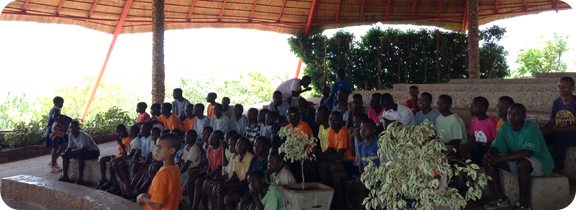
Community Links
The vision set out by His Highness the Aga Khan is for each Academy to become an integral part of the greater community in which it resides. This value applies not only to the students but also to the teachers at each of the Academies.
This focus comes into play at the admissions stage where potential students are chosen not only for their thirst for knowledge and intellectual merit, but also for having a high level of social awareness. This includes the desire to work towards, and instigate, positive change and the potential for leadership in community service.
Community service plays a large part in each of the levels of education offered at the Academies, which in turn allows for graduates that are civic minded. In choosing the sites for each school, special attention is paid to not only what the area can offer the students but also what the Academy can offer the community.
While supporting students in developing an understanding of global issues, the Academies’ educational programmes also reflect great sensitivity to local languages, history, cultures and environment. Each school is committed to inspiring and empowering students to use their gifts for the betterment of humanity.
Creativity, activity, service
In choosing the International Baccalaureate programme, the Aga Khan Academies chose to incorporate the creativity, activity, service (CAS) component.
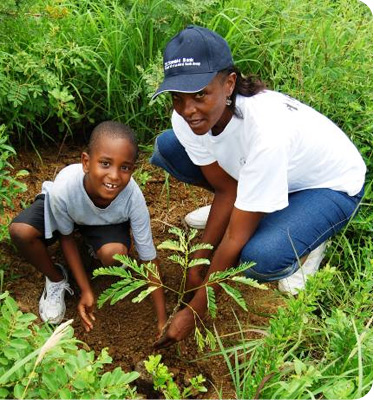
This integral programme is designed to create global citizens through active participation in and reflection upon experiences gained through a variety of creative endeavours, physical activities and community service projects.
Students develop a greater level of self-confidence, teamwork and leadership skills, and a sense of civic responsibility.They take part in sustainable projects that have real and lasting effects on the greater community. And they develop strength of character and an understanding of their ability to bring about change.
The CAS programme is valued for its power to transform not only the lives of students but also those with whom the students interact.
It also serves as a platform for interpersonal exchange, personal growth and greater understanding of the issues we face as a global community.
For more information of our CAS projects in action, visit our school websites.
Professional development outreach
Emphasis on community outreach and service is extended to the staff at each Academy as well, especially the teaching staff.
Each school will incorporate a Professional Development Centre (PDC), which will promote excellence in teaching on campus and strengthen the profession of teaching in the region as well.
"At the Academy, I feel part of a community. I am active in service projects that are making a real and lasting difference to people. I had no idea how important this would become for me."The Academy’s PDC supports excellence in teaching by promoting best practices in teaching and learning and by providing ongoing, collaborative training of Academy faculty as well as teachers and headteachers from neighbouring government, private and not-for-profit schools.
Faculty members are also enriched by opportunities to collaborate with colleagues across the globe and to teach abroad within the Aga Khan Academies network.
Stephen Nyundo: Fostering students’ growth through Mathematics
Before we enter the 2019 – 2020 academic term, we would like to spotlight a few staff from AKA Mombasa who are going on to pursue new adventures in the upcoming academic year. Here, we take a look at Stephen Nyundo, a Mathematics teacher and head of the department, and his five years at the Academy.
Stephen Nyundo is from the Kenyan coast, specifically from a place called Kaloleni and was the head of department for the Mathematics department at the Aga Khan Academy Mombasa. Apart from the Mathematics department, Stephen was also the year level leader for year 9.
During his five years at the Academy, Stephen said he has admired the supportive relationships he’s made, which have helped him become a better teacher.
“My experience has been enriching and very rewarding at the Academy,” Stephen said. “I have interacted with friendly and accomodating people who did not look at my weaker side. People would tell me things would be fine, even when they actually appeared otherwise. I was supported in my early years in my professional growth and got an opportunity to learn all that I needed to learn. I will miss the family, friendship, strong ties and network I’ve built here. I will definitely miss the Friday treats.”
Stephen said the ethics and values instilled at the Academy not only influenced the students, but himself as well.
“The Academy has molded me to what I now am,” Stephen said. “I will carry with me the Academy values that I am sure will propel me to greatness.”
For the Mathematics department, Stephen said he has worked with students to develop methods on helping other students who might struggle with the subject.
“A good example is 'Euler Fulfillers', a YouTube initiative by two of my Mathematics HL students who came to me with the idea,” Stephen said. “After brainstorming, we thought this was the best move where Academy students can share with their fellow students in the Academy what they know best and also help others out with challenges in Mathematics. The other platform is the ‘MathMagic’, which brought together students from all of the classes to showcase how Mathematics is applied in real-life in the various units covered. The next platform we had planned to start working on was the 'Mathletics', which is a modified form of a treasure hunt. This is where talent is found; students make use of what they have learnt in the classroom to various situations in real-life.”
After his time at the Academy, Stephen said he is ready to pursue other teaching opportunities. However, Catherine Orwe, a Mathematics teacher who works with Stephen, said he will be dearly missed at the Academy by both students and his colleagues.
“Stephen has not been just a colleague for us, but a true friend and a person with a big heart,” Catherine said. “He always made time for all even when he had tight schedules to meet. He is always very positive even when the rest of the crowd was struggling with issues. He always worked very collaboratively with colleagues to achieve our departmental goals. He pleaded with members’ input by genuinely valuing others’ ideas and expertise, and he was always willing to learn from all of us. Yes, we have learnt so much from him. He is an amazing Mathematics teacher, and I know his students here will miss him. Stephen is a person that pays attention to details in everything that you do and he is the one who would point out the changes that we needed to make in our presentations both at table and the curriculum implementation. We will definitely miss having a wonderful friend like Stephen. Good luck to him in his future endeavors! We hope the new place he goes to is full of fun and happiness.”
Adilia Cabral: Standing Up for Inclusiveness and Respect in Classrooms
Throughout the course of her teaching journey, Adilia Cabral has valued the importance of inclusivity in creating an engaging and fruitful environment in the classroom. She shares details of her evolution during her time at Aga Khan Academy Maputo.
For the Aga Khan Academy Maputo teacher, Adilia Denise Aly Guedes Evaristo Cabral, mutual trust between teachers and students, as well as between students themselves, is of paramount importance for a thriving classroom. It is a crucial factor for any successful learning experience. And how does Adilia ensure this flourishing environment persists in her classroom in Maputo, Mozambique? By supporting students and ensuring they support and respect each other.
“I teach with love because I want to gain the trust and friendship of students. I am always available to listen to them and I want them to feel comfortable sharing their problems with me. I always try to look students in the eye and read their body language, because that's what dictates how I should react with a particular student that day,” she says, adding, “I also make sure there is a spirit of cooperation between students in the classroom.”
Listening to Adilia and the details of her background, education and experience, one feels she chose the perfect career for herself.
“When I was a young student in school, one of my aunts, who was an educator herself, told me that I should follow the teaching profession because she saw I had a passion for that calling. I am glad I listened to her. I love to teach and want to inspire and empower my students to excel in whatever they choose to do.”
Adilia was born in Mozambique in the province of Beira. She has a degree in French teaching from the Pedagogical University in Maputo, Mozambique. After graduating in 2004, she taught in private schools around the cities of Maputo and Matola. She joined the Academy in 2017 where she teaches French Language Acquisition and Portuguese Language and Literature.
The Academy’s International Baccalaureate (IB) curriculum is interwoven with the rich Aga Khan Curricular Strands of ethics, pluralism, economics for development, cultures, governance and civil society. These play a vital role in Adilia’s instruction as she incorporates them in her lessons.
“One way to ensure that in a pluralistic environment there is no discrimination or bullying is to make students respect each other regardless of colour, race or background. This is an aspect that is always reinforced within the Academy through the Aga Khan Academies' Learner Profile, in the classrooms and the way our units are designed.”
Making certain students respect each other and work together is important to Adilia. But so is independent learning. As she explains, “During my class, I prioritise teamwork, group work and peer work as well. All students must respect each other regardless of disagreements. As for training small leaders, the activities are designed so that each student takes action in the units. I always give students opportunities to become independent and look for solutions to overcome problems and obstacles. In my classes, each student contributes to the success of the group.”
Joining the Academy has been a transformative journey for Adilia. It has helped her in her personal and professional growth and has made it possible for her to become a more effective educator.
“The Academy has made me a better instructor by giving me feedback on my teaching,” she states and adds, “also, the institution offers ongoing training courses to make teachers more effective and more successful.”
Reflecting on her time at the institution, Adilia says a day that was especially rewarding and memorable for her was the day she graduated from the Academy’s Teachers Preparation Programme (TPP).
“I felt special,” she recounts with pride. “I felt recognised for what I was doing and it made me aware of how important the training was and how important the teaching profession was. The Academy was placing great trust in me. And I had to work hard for not only for myself, but for my students and for my country. That day was the beginning and not the end of a long journey.”
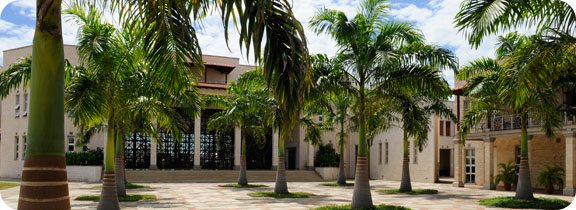
Academy Campuses
The campus of each Aga Khan Academy is architect designed and purpose built, and features exceptional facilities for all aspects of student life. Each campus is designed by renowned architects and is tailored both to meet the needs of the school and to maximise the potential of the site.
Site selection and design
Site selection is a complex process that takes into account a number of factors. These include the urban context of the site, accessibility, infrastructure support and options for long-term expansion.
The site must be able to provide an environment that will be conducive to learning and living. It should also have the potential for creating a space that is inspiring and special for those who live, study and visit there.
The design process for an Academy campus takes into account best practices in facility design. This includes construction techniques that allow spaces to be used for multiple purposes, and classroom environments that are conducive to interactive learning.
Extensive facilities
Each Academy includes the following academic and resource areas:
- age and subject-appropriate classrooms
- well-equipped science and computer laboratories
- library and resource centres
- art and music rooms
- theatre
- design and technology workshop
- multipurpose hall
- religion and culture room
- career counselling facility
- Commons building, which houses the dining hall and an array of spaces for school activities. It is designed to be the hub of student activity, serving as the Academy’s main space for major school functions, including music and drama performances and public lectures.
The sports facilities are extensive and include:
- swimming pools
- sports fields, for example for soccer, hockey and athletics
- gymnasium for indoor sports such as basketball, badminton, volleyball, gymnastics
- tennis court, cricket pitch or ice-skating rink, as appropriate.
Residential accommodation
Residential facilities have been designed to accommodate students and dorm parents (teachers who have been selected and trained to live in the faculty apartments in the student residences).
Accommodation is available for Academy community members from both within the country and overseas, as well as those visiting or on exchange from other Academies. Additional teachers' quarters on campus house both resident and visiting faculty along with their families.
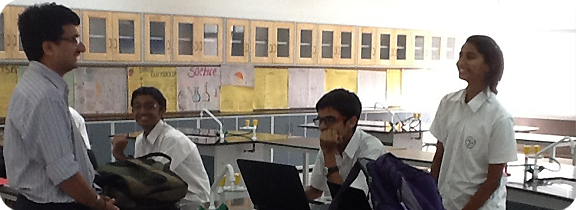
Faculty Development
Promoting excellence in teaching, both on campus and more broadly, is a fundamental goal of the Aga Khan Academies.
The effort to establish a Professional Development Centre (PDC) at each Academy is one of the outstanding features of the network. The PDC aims to strengthen the profession of teaching in the region by providing substantial professional learning opportunities and modelling highly effective educational practice.
Developing strength in teaching
The Academies aim to identify and develop teachers of the highest quality who are committed to both the all-round development of young people and to their own professional excellence. The Academy PDCs support excellence by striving to model best practices in teaching and learning within all of its classes and by providing high quality development opportunities for all Academy teachers.
Faculty members are also enriched by opportunities to work collaboratively with more experienced colleagues from around the globe and to teach abroad within the Aga Khan Academies network.
Investing in teachers
In addition to a broad programme of professional development for faculty and staff, the Academy PDCs offer substantial programmes under their Professional Learning for Educators Series (PLES) for teachers in local government, independent and not-for profit schools.
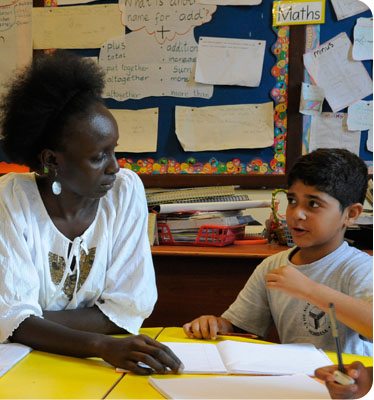
The PLES programmes are specifically designed by the Aga Khan Academies to respond to the needs of teachers, as identified through extensive market research and dialogue with government officials and education departments.
The series includes programmes for teachers in various subject areas as well as specialised programmes focussing on the skills and capabilities required for effective teaching.
Each programme builds professional competence by focussing equally on enhancing teachers’ subject knowledge and on how best to teach that subject. Each provides participants with a balance of intensive facilitated learning activities followed by an extended period of assisted application and observation within the context of their own classrooms.
To read about participants' experience of these programmes, click here.
"In this ambition, we are heartened by an important new World Bank study which indicates that it is not the quantity of time or money that leads to educational success, but rather the quality of specific educational experiences. The stimulus provided by extraordinary teachers and exceptional companions is most important."
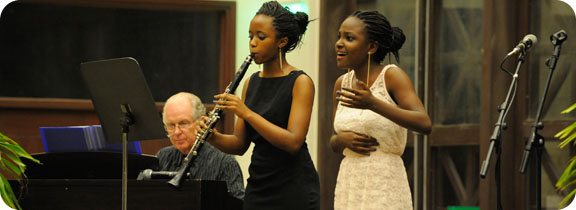
Student Projects
"What students know is no longer the most important measure of an education. The true test is the ability of students and graduates to engage with what they do not know, and to work out a solution."
– His Highness the Aga Khan
Our goal is to instil in each student the desire to acquire knowledge as part of a balanced, lifelong process of inquiry. This, in turn, leads to their intellectual and personal growth.
In addition to mastering core subjects, our students acquire the skills, worldview, integrity and confidence to adapt to new challenges. To help students develop these skills, we encourage them to pursue projects in their classrooms based on sound inquiry, careful analysis and informed research.
Practical problem solving
We offer Product Design as well as Digital Design within the umbrella of Design as prescribed by the International Baccalaureate Middle Years Programme. These courses are designed to teach students the skill of problem solving, both real and perceived. In the early years, a guided approach is used with more or less generic solutions. In later years, students explore possibilities based on the needs of clients and emergent target reach. As part of the requirements, students create a physical solution while taking into consideration the properties of the materials they employ.
Students follow a problem-solving process, which includes:
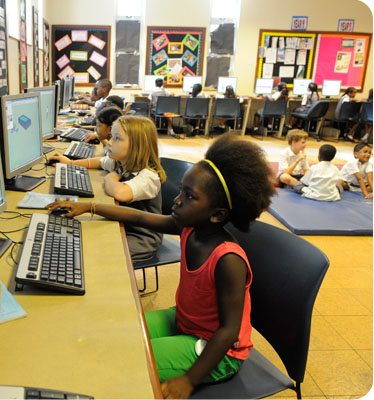
- Analysing the problem
- Designing a solution and producing specifications of a product to address the need
- Developing various designs and rating them based on the specifications
- Developing and implementing a plan for production of the design selected
- Evaluating the product for use and functionality
Students are also expected to provide supporting written documentation.
Student experience at 2016 Peace Summit
The Peace Summit is an annual event conducted over a period of two days by the DP1 cohort for Year 9. It is one of the most actively student-driven events at AKA Mombasa. Preparation for the Peace Summit begins well in advance, with DP1 students starting to work on their modules since August last year. The main aims of this Peace Summit were to make us believe that peace is possible, empowering us to be leaders, showing us how to work together to resolve conflicts, and devising sustainable solutions to global issues. The main theme of this year’s Peace Summit was Conflict Over Resources, and our first activity at the Peace Summit was the Hunger Banquet.
The Hunger Banquet was an activity where Year 9 students were divided into three groups; low-income, middle-income, and high-income. Each group was treated differently according to their socioeconomic status. The poor people were given boiled rice, the middle class was served cake, and the rich people were provided with a proper breakfast. We were all in a place where we could clearly observe how the other groups were being treated. The Hunger Banquet was a very accurate depiction of our world today - less than one percent of the global population being rich, and the majority being poor. After this activity we concluded that the cycle of poverty affects generations and is really hard to escape. Also, the rich people group was only able to help a small number of poor people, which showed how the rich don’t have a large-scale impact on alleviating poverty. The Hunger Banquet was an amazing introduction as it made us think of sustainable solutions to breaking out of the cyclical nature of poverty – which was what the Peace Summit was mainly about.
We had two guest speakers come in during the Peace Summit to enhance our knowledge; the Manager of Facebook in Kenya, and a member of the COBURWAS. The Manager of Facebook in Kenya, Naheed Hirji, talked about how the internet can be used as a tool to create peace if used in the right manner, and how it has previously been used to destroy peace. He talked about the ways the world has improved due to technological advancement and also discussed the pros and cons of the internet. Our second guest speaker, Joseph Munyambanza, was a Congolese person who had lived in Uganda for most of his life and had worked in refugee camps on providing children education for a brighter future. He enlightened us with his journey and explained how his programmes help children in acquiring quality education. The two speeches were of great benefit to us, as they educated us about real-life attempts to create peace.
During the modules of the Peace Summit, we talked about different crises around the world and proposed possible solutions to them. We used many case studies such as – Coltan mining in DRC, and the water crises between Tajikistan and Uzbekistan. We talked about all sorts of things during these modules, analyzing each of these situations in-depth and suggesting better solutions for each issue. The Peace Summit provided us with a platform to debate current issues, propose solutions for them, and also reflect on them critically. These two days greatly helped us realize how privileged we are to have all the resources we do and to live in an environment much safer than many children who are currently suffering. It also made us believe that we can make a change, no matter how small – it will definitely impact the world in one way or another. We are all part of this world and we all contribute to the problems of the world in a positive or negative manner – so let’s make it positive and work on resolving the problems in our world. Let’s Make A Change!
--Tabreek Somani, Year 9 (The Reporters)

